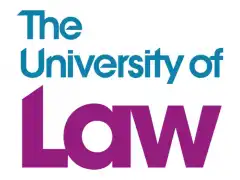Master of Laws - Healthcare Regulation
- 1 year
- Duration
- 19,050 GBP
- Price
- Rolling admission
- Start
- Rolling admission
- Deadline
- Master
- Degree
- Mixed
- Format
- London / United Kingdom
- Location
- ULaw - The University of Law
- School
Program description
Individuals who are highly numerate and interested in market analysis and appraising investment and trading prospects will thrive in this one-year MSc Investment and Trading postgraduate curriculum, which places a heavy emphasis on satisfying the development demands of the industry.
As a result of this training, you'll have the tools to analyze and evaluate the myriad of data and variables that affect the potential returns of your current investment and trading options. Investment returns, opportunity costs, and market and economic data will all be examined and compared. You will be in a better position to make educated trading and investment selections if you have a firm grasp of the necessary corporate responsibilities.
Earning a Master of Science in Investment and Trading from us will set you up for success in the investment and trading industry or in related back-office roles throughout the supply and demand spectrum. Classes are structured to give students a taste of what it's like to work in the financial sector for real.
Program structure
Terms 1&2
In addition to a general induction to the programme, there is a two-week induction covering the Key Principles of the English Legal System. This is compulsory for non-law students, but also open to students wanting a refresher in the fundamentals of the law of England and Wales. This would be useful for any student who has taken a considerable break from legal education.
Compulsory modules include:
- Healthcare Regulation
- Research Methods Training to help you prepare for your dissertation
You may then choose three from the list of elective modules which includes modules such as:
- Legal Ethics
- Medical Law and Ethics
- Mental Health Law
Term 3
- Dissertation in Healthcare Regulation
Price
Tuition fees for international students per year:
- 19,050 GBP (London)
- 17,700 GBP (Outside of London)
- 11,900 GBP (Online)
Requirements for applicants
- Minimum second-class honours degree
English language requirements for applicants whose first language is not English
- IELTS score required: 6.5 overall (at least 5.5 in each component)
- The University of Law English Test (ULET)*: 6.5 overall (at least 5.5 in each component)
- TOEFL iBT (not ‘MyBest Scores’): 79 (Listening 11, Speaking 17, Reading 12, Writing 20)
- Pearson PTE Academic: 72 overall (at least 59 in each component)
- LanguageCert ESOL (both papers must be sat within 3 months): B2 Written paper: overall 101 (min 33 in R/L/W); B2 Spoken paper: min 33/50
- Trinity ISE : ISE II: Three merits and one distinction
- Cambridge FCE/CAE/CPE (First, Advanced, Proficiency): 176 overall (at least 162 in each component)
- Cambridge IGCSE syllabus 0500, 0510, 0511, 0522, 0900, 0991:1st Language: C; 2nd Language: B
- International Baccalaureate : 4
- Functional Skills: Pass
- Trinity ESOL for Life Skills: Pass
*The University of Law English Test (ULET) was developed to evaluate your level of English for undergraduate or graduate education. Our University will consider it as evidence of your proficiency in English. Additionally, it complies with the conditions for a UK visa for immigration (UKVI).
About the university

The University of Law is the largest law school in the United Kingdom and was formed in 1962 as The College of Law of England and Wales. It offers law degrees, specialized legal training, and continuing professional development courses for British barristers and lawyers. Its beginnings can be found around 1876.
Prior to receiving university status in 2012, the College of Law's educational and training business was divided off and incorporated as a private limited company. The College of Law had been established by royal charter as a charity in 1975. The College of Law Limited and The University of Law Limited were created from this. The college was given the authority to offer degrees in 2006. When it was given university status in 2012, it changed its name to The University of Law (ULaw) and became the first for-profit educational institution in the UK.
The university has nine campuses in the UK, located in Birmingham, Bristol, Chester, Guildford, Leeds, Manchester, Nottingham, and Sheffield, in addition to an overseas campus in Hong Kong.
All of our courses, from our undergraduate law degrees to our varied range of business courses and postgraduate programmes, are created using a special, varied, and innovative learning approach that has been shown to produce independent professionals capable of competing in the quickly changing professional world. Our courses are created to prepare you for the real-life difficulties of the working world with a focus on developing abilities in problem-solving, evaluating arguments, critical thinking, and commercial awareness.
Read more about The University of Law (ULaw), United Kingdom





